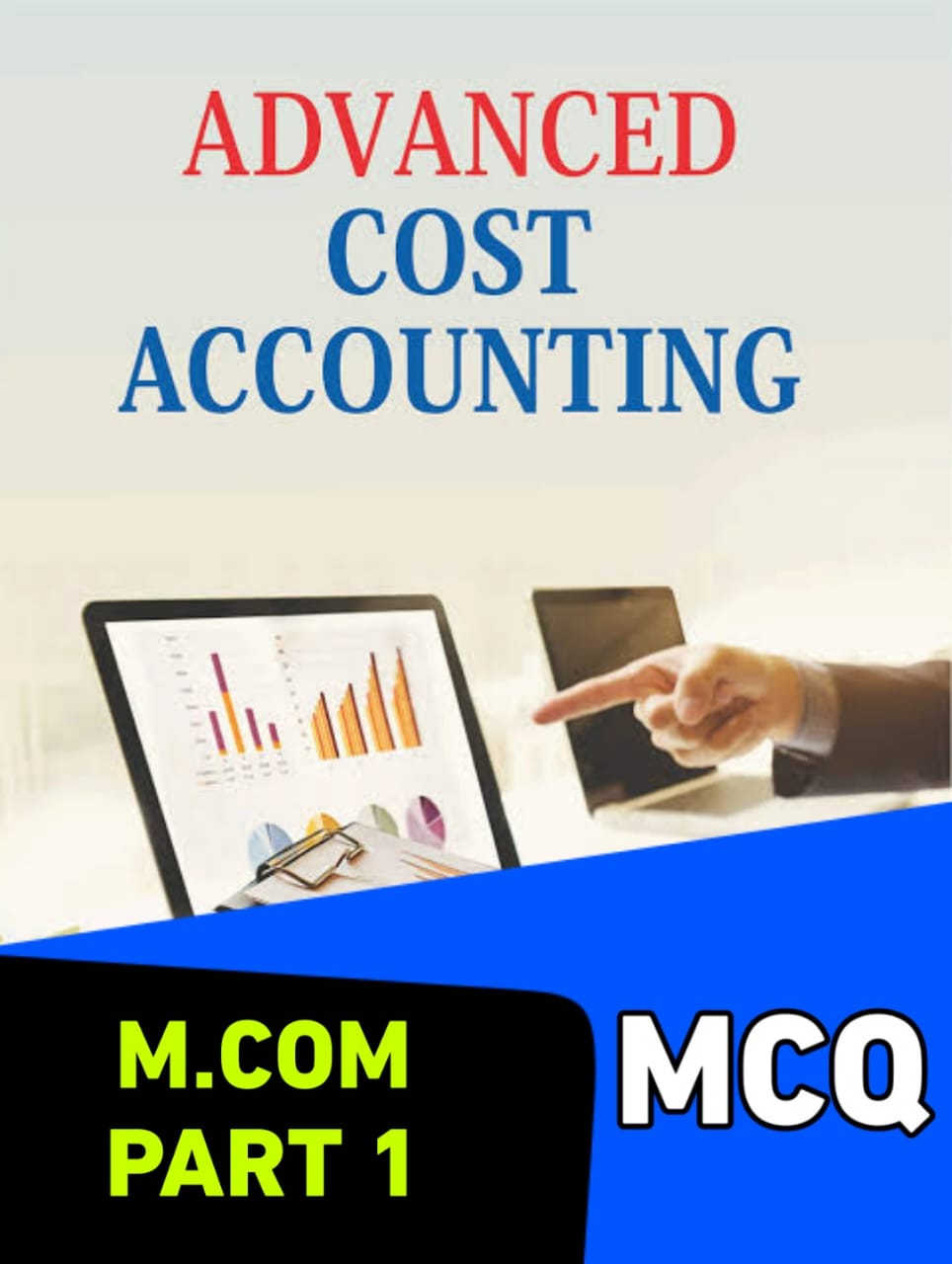ADVANCE COST ACCOUNTING
1. In case of steam company, the cost per unit
is calculated on the basis of
(a) Total quantity
of lbs. produced
(b) Total quantity of kwh. generated
(c) Total quantity of tones produced.
ANS. A
2. Materials Requisition Note
(a) Authorizes and records the issue of materials for use
(b) Records the return of unused materials.
(c) Records the transfer of materials from one store to
another
(d) A classified record of materials, issues, returns and
transfers.
ANS. A
3. Materials Transfer Note
(a) Authorizes and records the issue of materials for use
(b) Records the return of unused materials.
(c) Records the shifting of materials from one store to
another.
(d) A classified record of materials, issues, returns and
transfers.
ANS. C
4. A document which is a classified record of
material issues, returns and transfers.
(a) Materials Requisition Note
(b) Material Return Note
(c) Materials Transfer Note
(d) Materials issue Analysis sheet
ANS. D
5. This is essential to make the cost ledger
`self-balancing’
(a) General Ledger Adjustment Account
(b) Stores Ledger Control Account
(c) Work-in-progress Ledger
(d) Finished Goods Control Account
AND. A
6. This is debited with all purchases of
materials for the stores and credited with all issues of materials.
(a) General Ledger Adjustment Account
(b) Stores Ledger Control Account
(c) Work-in-progress Ledger
(d) Finished Goods Control Account
AND. B
7. In this, cost of materials, wages and
overheads of each job undertaken is posted.
(a) General Ledger Adjustment Account
(b) Stores Ledger Control Account
(c) Work-in-progress Ledger
(d) Finished Goods Control Account
ANS. C
8. In non-integrated system of accounting, the
emphasis is on
(a) Personal accounts
(b) Real accounts
(c ) Nominal accounts
(d) All of these
ANS. C
9. Cost and financial accounts are required to
be reconciled under
(a) Integral system
(b) Cost control accounts system
(c) Under both (a) and (b)
(d) None of these
ANS. B
10. Purchases for special jobs is debited to
(a) Work-in-progress ledger control account
(b) Cost ledger control account
(c) Stores ledger control account
ANS. A
11. Notional costs
(a) May be included in interlocking accounts
(b) May be included in integrated accounts
(c) Cannot be included in interlooking accounts
(d) Neither (a) nor (b) or (c)
ANS. A
12. Contribution margin is also known as
a)Variable cost
b) Gross Profit
c) Net Income
ANS. B
13. Period cost means
a) Variable cost
b) Fixed cost,
c) Prime cost
ANS. A
14. The break even point is the point at which:
a) There is no
profit no loss
b) Contribution
margin is equal to total fixed cost:
c) Total revenue is
equal to total cost:
d) All of the above
ANS. A
15. Production cost under marginal costing
include
(a) Prime cost only
(b) Prime cost and variable overhead
(c) Price cost and fixed overhead
(d) Price cost, variable overhead and fixed overhead
ANS. B
16. One of the primary difference between
marginal costing and absorption costing is regarding the treatment of :
(a) Direct material
(b) Variable overhead
(c) Fixed overhead
(d) Overhead costs
ANS. C
17. Period costs are :
(a) Variable costs
(b) Fixed cost
(c) Prime cost
(d) Overhead cost
ANS. C
18. Absorption costing differs from marginal
costing in the
(a) Fact that standard costs can be used with absorption
costing but not with marginal costing.
(b) Amount of fixed costs that will be incurred
(c) Kind of activities for which each can be use
(d) Amount of costs assigned to individual units of
products.
ANS. D
19.To obtain the break-even point in rupee
sales value, total fixed costs are divided by :
(a) Variable cost per unit
(b) Contribution margin per unit
(c) Fixed cost per unit
(d) Profit / volume ration.
ANS. D
20. The break-even point is the point at which
(a) There is no profit no loss
(b) Contribution margin is equal to total fixed cost,
(c) Total revenue is equal to total cost
(d) All of the above.
ANS. D
21. Margin of safety is referred to as :
(a) Excess of actual sales over fixed expenses
(b) Excess of actual sales over variable expenses
(c) Excess of actual sales over break-even sales
(d) Excess of budgeted sales over fixed costs.
ANS. C
22. Material cost variance arises due to
variation in price and______ of materials.
(a) Quality
(b) Quantity
(c) Volume
(d) Delivery
ANS. B
23. Idle time variance is due to difference
between labour hours applied and labour hours _____.
(a) Utilised
(b) Supplied
(c) Unutilised
(d) Underutilised
ANS. A
24.
Fixed overhead capacity variance arises due to difference between capacity
utilized and _______ capacity.
(a) Spare
(b) Excess
(c) Fixed
(d) Planned
ANS. D
25. Sales mix variance is due to the difference
between standard value of actual sales and actual value of sales _______.
(a) Realised
(b) Effected
(c) Margin
(d) Volume
ANS. A
If You Need Most Importance MCQ PDF Cost Accounting Question Bank Than Pay Rs 100 Only
Contact 8652719712 / 8779537141
Telegram Group

